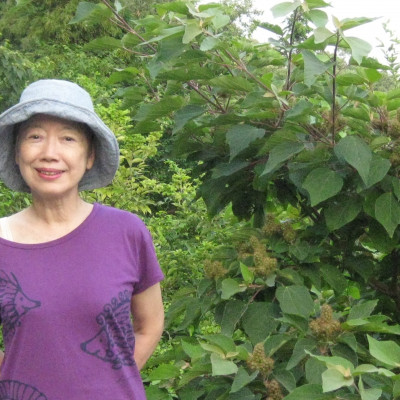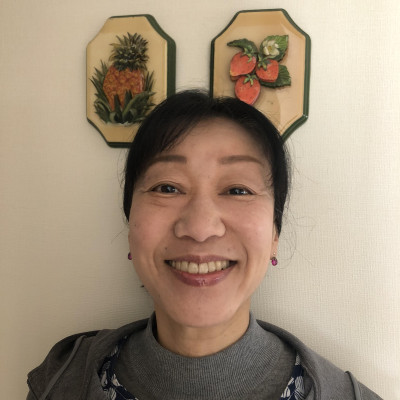Sessions / Location Name: Room 1
Virtual Location
Virtual: You cannot enter virtually via this page. Click on the titles of individual presentations or go to the Live Page
From emails to business letters: Teacher explorations in learner autonomy and pragmatics #2565
Japanese university students typically have little knowledge or experience of writing emails or letters in English. Even short emails to teachers to apologize for an absence or to submit an assignment tend to be inadequate. Students in their final two years may need to be writing business letters as they approach the world of work, but this, too, they typically have not learned to do. This presentation will report on two explorations into student writing of emails and business letters in which the resources needed for writing were sourced and shared by the students on Google docs. Both explorations also addressed issues in pragmatics: choices regarding register, and expression in written communications of the speech acts of request, acceptance, and refusal.
On Becoming an EFL Writing Teacher-Researcher #2570
This presentation investigates how an early career L2 writing teacher-researcher negotiates constraints and opportunities for professional development and identity construction. Utilizing an autoethnographic interpretive approach, the account reflects on the presenter’s MA TESOL program experience at a Japanese university while simultaneously working as an assistant professor in the Humanities department of another Japanese university. The presentation shares a self-reflexive analysis of how current EFL writing teacher education is situated in relation to dominant North American themes, trends, and pedagogical conceptions. Finally, the presentation offers insight into negotiating the challenges of becoming an L2 writing teacher-researcher in terms of professional development and identity formation by reaching out to the international L2 writing community, presenting and publishing research, and reflecting on notions of self-efficacy.
Exploring Learners’ Pragmatic Competence in L2 Email Writing #2576
This study analyses university students’ pragmatic competence in a series of English email tasks. This study analyses 87 Japanese university students’ pragmatic competence in a series of English email tasks. The students were engaged in a series of L2 English email activities: 1) email rating task, 2) metapragmatic discussion, and 3) email writing task after instruction on composing emails. Data used for the present study come from the scores of email rating tasks, participants’ written observations, and email compositions. Findings show participants’ awareness of formal email structure after the instruction. Based on the findings, pedagogical implications regarding awareness-raising tasks for email composition will be discussed.
Developing Writer Identity: Self-representation in L2 English Text #2582
Writers as agents project their identity in their texts in a variety of ways. The most direct way is by referring to themselves explicitly in their texts (e.g., “I/we,” “the author/researcher”). In this presentation, we share our recent research on self-representation in English and Japanese argumentation essays. By comparing the essays written by novice, intermediate, and advanced L1/L2 writers, we found a complex picture. Our analysis reveals that development of self-representation by L2 writers moves in a gradual, non-linear way from personal to more objective, nuanced, and implicit. The presentation focuses on changing uses of first-person pronouns (“I/my/we”) and opinion qualifiers (e.g., “I think”) in L2 English essays by Japanese writers, as compared with essays on the same topics by North American L1 English writers. The findings suggest strategies Japanese writers at various levels can adopt to represent themselves more confidently and appropriately in their L2 English writing.
Teaching ELT in Vietnam for NNESTs #2625
The demand for EFL instructors throughout Asia, particularly in Vietnam, has resulted in a major diaspora of non-native teachers. This study utilized a comprehensive semi-structured interview with 12 non-native English-speaking teacher-participants. The benefits of non-native English-speaking instructors in Vietnam were emphasized, including the strong demand for EFL Jobs, simpler hiring processing, and advancement possibilities. There were professional issues on discrimination and biases and racism experienced from companies and students. Despite the challenges, there were relevant suggestions shared to cope with the challenges such as getting qualified, adapting to culture, and possessing optimism towards teaching as non-native teacher in Vietnam.
Writer Agency and Transfer in Argumentative Essays #2626
This case study explores writer agency of the two Japanese students in composing their L1 Japanese argumentative essays, with a particular attention to the transfer from their L2 English knowledge and experiences. The analyses of their bilingual argumentative essays and interview data revealed that English knowledge and learning experiences can be the predicting factors to transfer from English to Japanese argumentative essays for the upper-intermediate English proficiency student. On the other hand, the intermediate English level student hardly showed the English writing transfer effects on her Japanese argumentative essay. Pedagogical implications are reported based on the results of the study.
An International Virtual Business Project : Our Collaboration #2627
This presentation introduces the two-month virtual business professional [VBP] team project that I participated in . The aim of this project is to have international students interact with each other to analyse the online presence of international companies. The VBP project includes academic articles, videos, and worksheets to prepare for online team meetings. I will focus on the flow of teamwork in this presentation. I found that achieving the goal with people from different countries can be difficult even if we have a common purpose. I will explain my experience using some data and my self-reflections.
The Listening Leader #2628
A voice has the power to raise awareness, but it is nothing without someone to listen to it. Many possibilities for change are opened by awareness, but without individuals taking action, it is meaningless. The role of pedagogical leaders in empowering students' voices in order to transform curriculum and school culture will be the subject of this presentation. Let's take on a journey with pedagogical leaders at an Indonesian private school as they begin to genuinely listen and act on what they've heard.
Gateways to Developing an Identity in Writing Academic Publications: Book Reviews, Conference Reports, & Interviews #2583
Educators are expected to demonstrate professional development and ongoing learning. Writing for publication and experiencing peer feedback can consolidate one’s professional knowledge and help build identity. The summary and critique in book reviews, the narration and reflection in conference reports, and the informed interaction in interviews provide initial access to an academic discourse community. This presentation looks at these three gateway publications available for all teachers to develop their identity as authors of academic publications. Workshop activities cover the structure of these genres with samples. Participants will take away a deeper understanding of writing for publication and some targets for their gateway submissions along with the added motivation to grow further through their writing within a supportive learning community.
Leveraging Identity in Writing Instruction #2587
Identity is an integral part of communication. Yet, in language and writing instruction, we tend to assume generic identity positions, such as the teacher, student, academic writers, and intelligent bystander. The goal of this presentation is to complicate the notion of identity by discussing how identity plays a role in the construction, negotiation, and use of discourse—especially written discourse. We will then discuss how the awareness of and strategies for constructing and negotiating identity can enhance students’ ability to engage with language and writing activities. We will also consider the role of teacher identity and how it can facilitate instructional practices.
Multiple Identities and Choices Outside the English Academic Writing Classroom #2588
This presentation considers the multiple identities which shape learners’ choices as they write, revise, and seek support about writing assignments outside the classroom. Data are drawn from a one-year qualitative study of the out-of-class academic English writing practices and social relationships of seven first-year university students in Japan. Identities described include those within their EAP programme (e.g., programme member, “Advanced EAP class” member) and outside it (e.g., hometown friend, extracurricular club member). The presenter will discuss how identities influenced participants’ choices. These choices included forming study groups to work on writing, meeting to discuss a peer’s feedback, comparing writing with others’, or, conversely, discounting peers as sources of writing advice. Implications for teachers of writing will also be addressed.
L2 learners’ emergent academic identity construction: an exploratory investigation into their writing assignments #2593
L2 learners need both academic reading and writing for university assignments, such as summaries, discussions, and argumentative papers. For a summary and discussion assignment, L2 learners read a text, summarize the author’s argument, and evaluate it critically, presenting their viewpoints as academic writers. Learners are encouraged to develop their academic identity through their awareness of reader-writer relationships, academic conventions, and genre. To date, little research has explored the theme of L2 learners’ academic identity development through reading-to-write assignments. The author investigated 23 L2 students’ reflective writing on their summary and discussion assignments in university academic English courses. The author presents the results from selected students, which illustrate their awareness of reader-writer relationships and emergent academic identities.
An Online Practice for L2 Source-based Writing #2598
Incorporating sources into their writing is challenging for Japanese university students due to their limited English writing proficiency and a lack of academic writing training even in Japanese. Teachers need to help the students locate, connect, and integrate information source texts into their writing step-by-step (Zhang, 2013). This presentation reports on an online classroom practice that was aimed to develop rhetoric, linguistic, and critical thinking skills to facilitate English source-based writing. Specifically, the presenter will introduce a verbal reasoning task that her students worked on collaboratively online. She will also report on pedagogical implications for L2 source-based writing instruction, followed by students’ reflections on their online activity.
Closing Ceremony #2623
Come and share your final thoughts about the conference!










